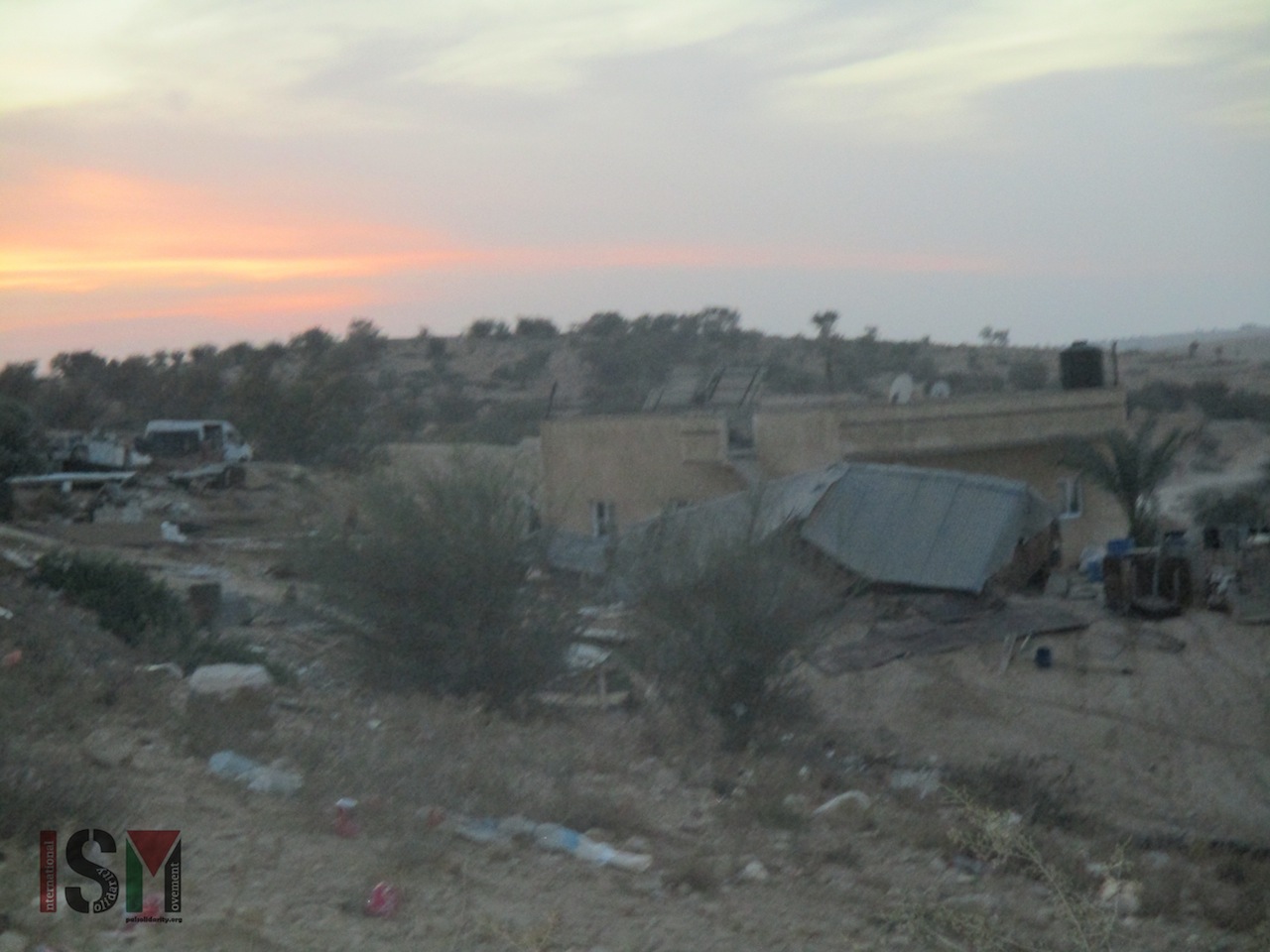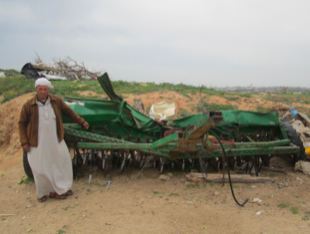Tag: Bedouin
-
Umm al-Hiran, a village off the maps
2nd December 2016 | International Solidarity Movement, Hebron/al-Khalil team | occupied Palestine Umm al-Hiran is a Bedouin village in the Negev desert in southern Israel. The village is surrounded by open landscape, the only structures in sight line. About a fifteen minute drive away is a small city called Hura, where the children from the village…
-
Last summer’s Israeli aggression is sending Gaza back to the Middle Ages
31st March | Miguel Hernández | Gaza, Occupied Palestine Zionist colonisers destroy the tools for self-sufficiency of Palestinians in Gaza Months after the last massive Israeli aggression against the Gaza Strip, thanks to the social and independent media, everyone has read news and seen pictures of the attacks from the zionist regime against residential buildings, United Nations shelter-schools, hospitals, ambulances, mosques,…
-
Protest against forced eviction pushes Israeli forces from the area
22nd September 2013 | International Solidarity Movement | Ezaryah, Occupied Palestine Today at 10:00, approximately 40 Palestinians and internationals marched together on a demonstration in the Ezaryah area east of Jerusalem. The demonstration was called to protest the forceful eviction of Palestinian Bedouin families in the Ras al-Baba area, close to Jerusalem. The civil administration is planning…



